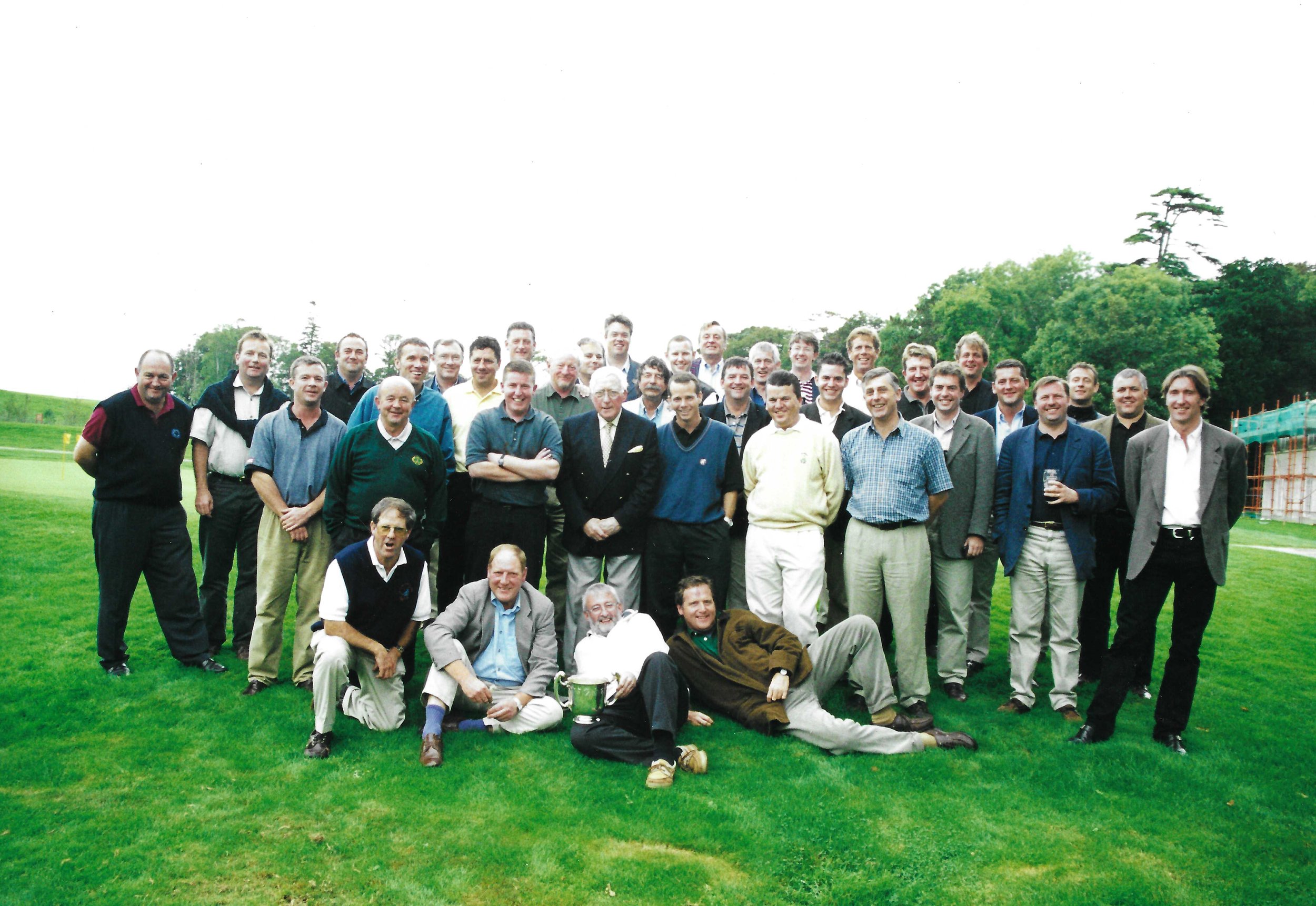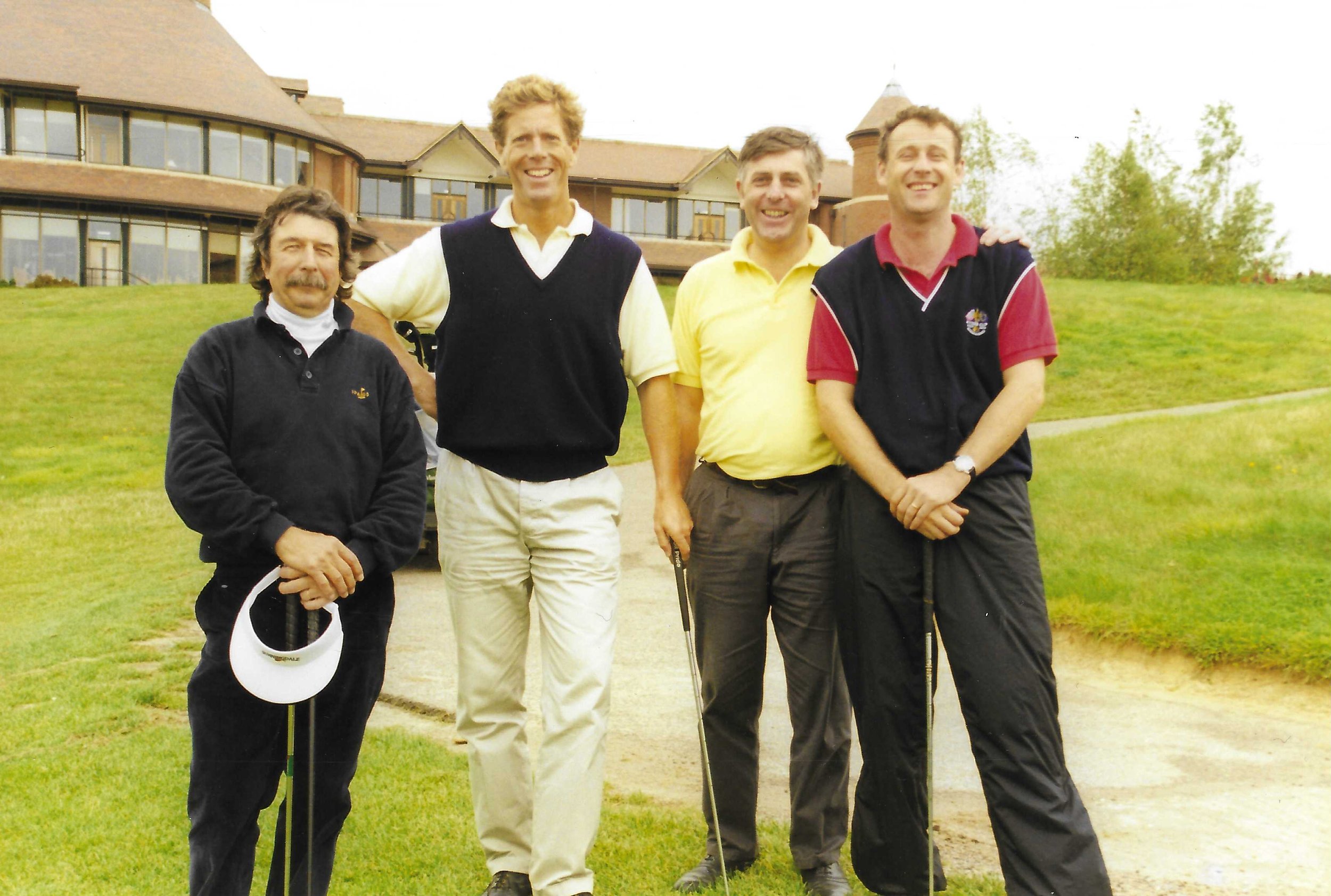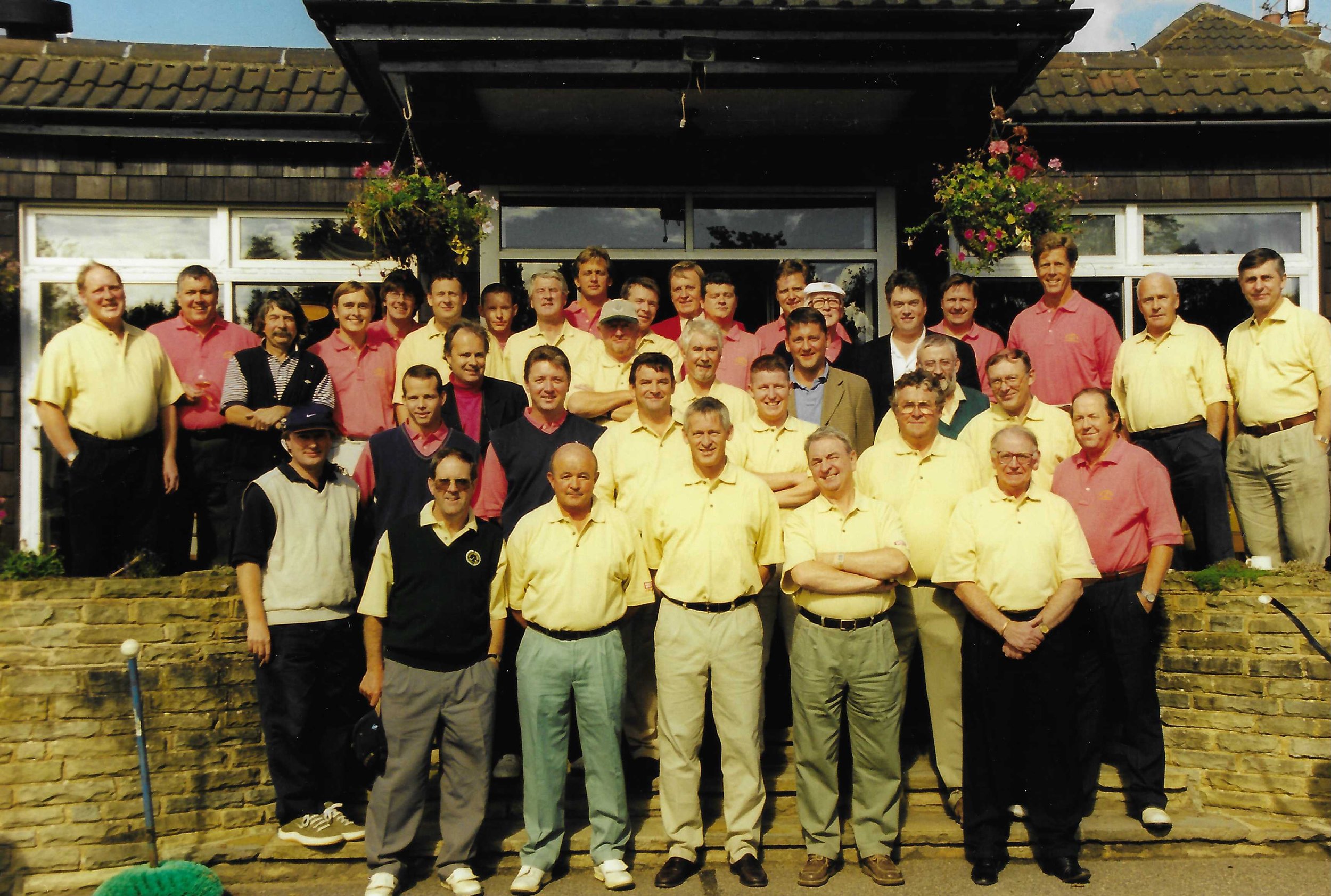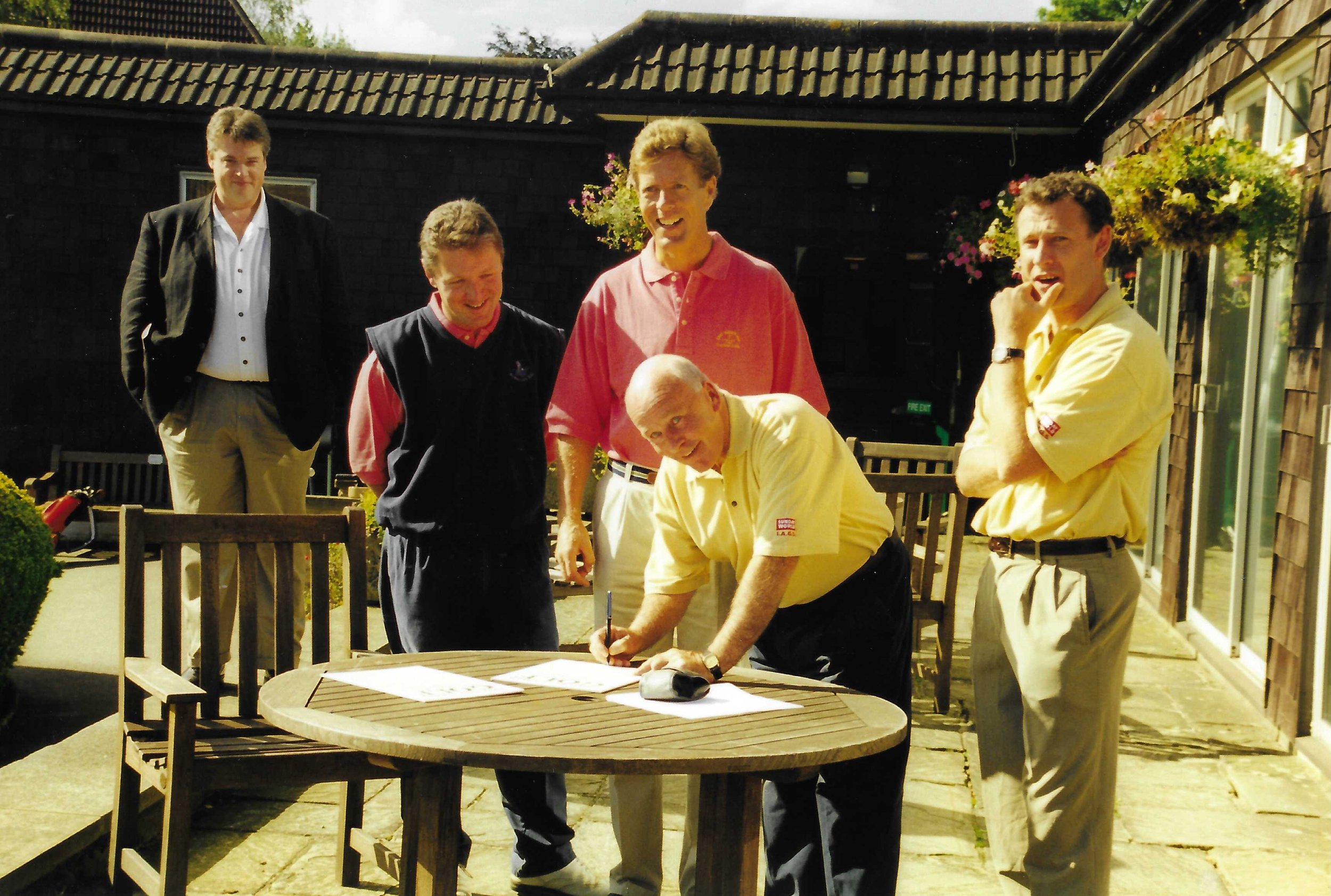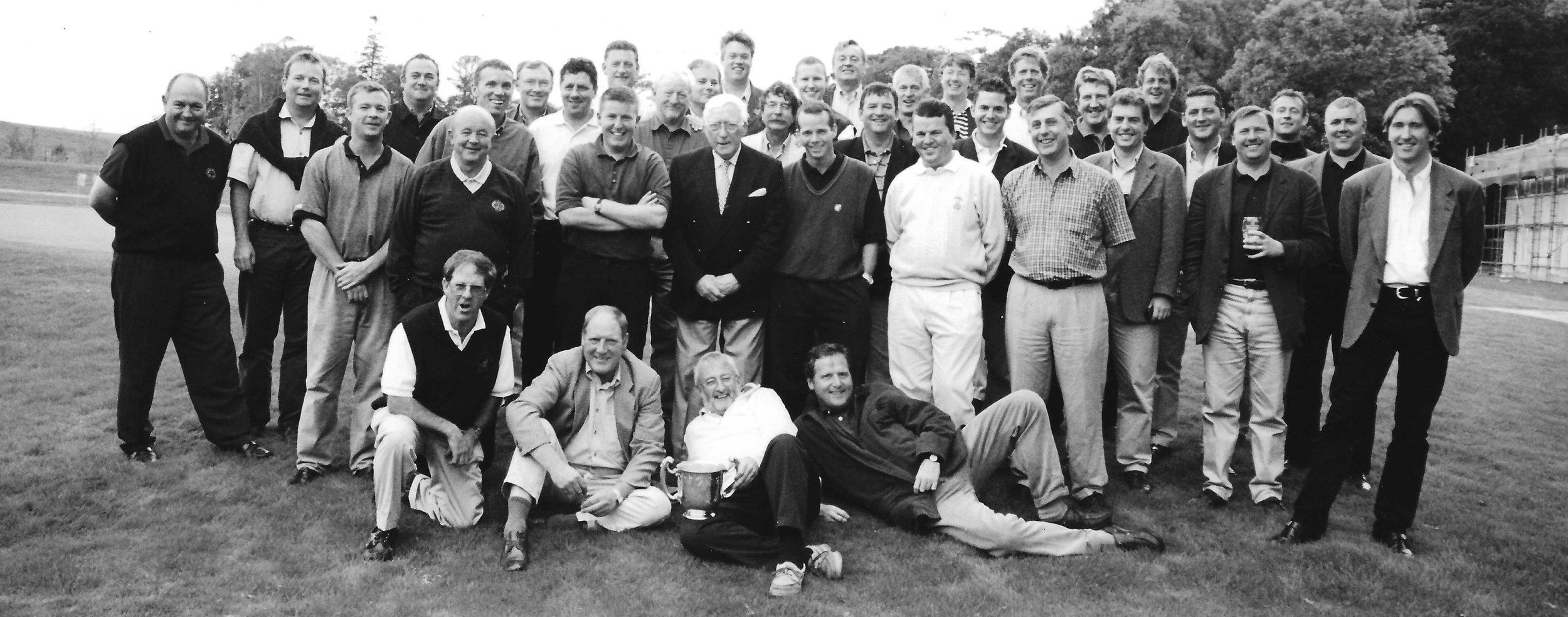
The Irish Match
For those of you who enjoy history (and bragging rights), please click the links below for select statistics and data from the event.
Back in 1996 Andy Byrd, who at the time had a place on the Board of the DMB&B affiliate QMP, was having a pint of Guinness in the Shelbourne Hotel in Dublin with Connor Quinn who was the Q in QMP. Inevitably the conversation got on to the subject of golf and Connor decided to lay down a challenge to Andy to find an additional nineteen golfers from the London advertising industry to come to Dublin and take on the might of the Irish Advertising Agencies.
The terms of engagement were officially drawn up and signed by the Irish. They read as follows:
It is hereby decreed that, every third season of every year, the esteemed golfers of the Institute of Practitioners in Advertising and the noble golfers of the Irish Advertising Society shall meet head to head in a matchplay contest for the Mike Masius trophy.
The venue of the match to alternate yearly between the rolling fairways of England’s green and pleasant land, and the lush Irish grass of that most bounteous isle.
All play to be in accordance with the rules of golf laid down and approved by the Royal and Ancient Golf Club of St Andrews Scotland.
The match to be contested by two sides of twenty players of varying abilities. Teams to be four-ball, paired in advance.
Let it be known that the handicap shall be ¾ difference, strokes to taken in accordance with the stipulated order on the scorecard. As agreed by the Honorary Secretary of the Council of the National Golf unions governing Great Britain and the Republic of Ireland.
The winners of the golf contest to hold the Mike Masius Trophy for one full calendar year, along with the attendant honour and glory that possession brings.
It is understood that each year the holders shall get out the Brasso and put the trophy up again.
And so in September 1996 a fixture was born which was played annually for the next ten years concluding at Royal Lytham & St Anne’s when victory by the English resulted in five matches won by each side.
